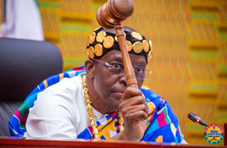By: Kizito CUDJOE
Ghana is set to overhaul its gold industry after parliament passed a bill aimed at curbing illicit trade and boosting foreign exchange reserves.
The Ghana Gold Board bill 2025, now awaiting presidential assent, will pave the way for creating a regulatory body to oversee gold trade, boost value addition and strengthen the country’s mineral reserves.
The Ghana Gold Board will monitor and facilitate the purchase, trade and export of gold and other precious minerals. It also aims to support the Bank of Ghana (BoG) in accumulating gold reserves and helping generate foreign exchange.
Lawmakers backing the bill argue that it will bring much-needed structure to Ghana’s gold sector, reduce illicit activities and ensure the country maximises revenue from its mineral wealth. Ghana, Africa’s top gold producer, has long sought to tighten regulations in the sector while encouraging local refining and processing.
According to a memorandum accompanying the bill, Ghana has not been reaping full benefits from its gold resources. In 2024, the country’s total gold export revenue stood at US$11.5billion – with the small-scale mining sector contributing US$4.6billion (40 percent) and the large-scale mining sector accounting for US$6.9billion (60 percent).
Despite gold’s critical role in the country’s economy, the document noted that revenues have been largely limited to royalties and taxes… with minimal direct gains from gold trading. Ghana also faces challenges in tracking foreign exchange inflows from exports, particularly within the small-scale mining sector.
The memorandum underlined a lack of centralised regulation, inconsistent oversight and inefficiencies that make it difficult for Ghana to retain foreign exchange from gold transactions. Weak enforcement has contributed to smuggling, tax losses and environmental damage.
Currently, multiple state agencies – including the BoG, Minerals Income Investment Fund (MIIF) and Precious Minerals Marketing Company (PMMC) – compete with private players such as licenced gold buyers and exporters. However, the absence of unified regulations has led to conflicting policies, inefficiencies and revenue leakages.
The document also pointed out that private companies involved in gold transactions operate with minimal supervision, increasing the risk of illicit financial flows and unaccounted exports.
While 61 licenced exporters are legally required to repatriate 81 percent of foreign exchange proceeds within 30 days, compliance has been low; further reducing Ghana’s foreign exchange inflows.
Another key issue is market access. The memorandum noted that Ghana’s gold, especially from small-scale miners, has struggled to meet standards of the London Bullion Market Association (LBMA), restricting exports primarily to the United Arab Emirates, India and Turkey.
The absence of large-scale local refineries has further compounded the problem, forcing Ghana to export semi-pure doré gold instead of refined bullion – hence missing out on potential value addition and economic gains.
The primary objective of the Ghana Gold Board is to maximise foreign exchange inflows, enhance gold reserve accumulation and increase national benefits from the entire gold value chain through a centralised approach aimed at economic revitalisation and sustainable growth.
The Gold Board will replace the existing Precious Minerals Marketing Company with an expanded mandate.
It was noted that establishing the Ghana Gold Board will necessitate amendments to key sections of the Minerals and Mining Act, 2006 (Act 703) and Minerals and Mining (General) Regulations, 2012 (L. 2173).
Once operational, the new regulatory framework will empower only the Gold Board, authorised subsidiaries of the Gold Board or licenced gold service providers to purchase gold in Ghana.
Small-scale miners will be required to sell gold produced to the Gold Board or its designated buyers, while the Gold Board will be required to assay all gold exported from the country.
Additionally, the Gold Board will assume sole responsibility for the export of gold produced by small-scale miners and unauthorised hoarding of gold will be prohibited under the bill.
If signed into law, the Ghana Gold Board is expected to play a central role in shaping policies to enhance transparency and profitability in the gold sector, according to the bill.
Resource governance expert and a member of the Civil Society Organisations (CSOs) coalition focused on the petroleum, power and renewable energy sectors, Dr. Steve Manteaw, in a reaction on social media to matters concerning establishment of the GoldBod said CSOs were consulted.
He said CSOs among others demanded strengthening of the transparency and accountability provisions and asserted that “lessons were drawn from PMMC’s past involvement in gold trading and its associated legacy debt”.
“The CSOs were given opportunity to submit a paper on some of their proposals, which they took advantage of. These did not generate the usual controversy and agitation because the GoldBod Committee was open to advice and criticism.










